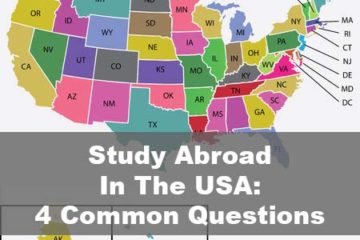4 Ways to Save Money on Student Travel
Traveling as a student, whether through a study abroad program, independently over the summer or during a gap year, can be advantageous in many ways and a way to deepen the college experience.
The main setback to traveling during college, however, is often finances. Traveling can be quite expensive, and most student travelers are on a tight budget to begin with. The good news is that there are easy ways to save money on travel as a student with the right kind of knowledge and preparation.
Here are four tips for the budget-minded student traveler that can help significantly cut back on costs, all without necessarily making you feel like you’ve missed out on much in the end.
1. Take advantage of student discounts
The biggest perk to traveling while you are a student is being eligible for a wide range of discounts.
The ISIC card (International Student Identity Card) is an internationally recognized form of student ID that can give you discounts all over the world on good and services such as tours, museums, city passes, and hotel/hostel accommodation, just to name a few.
On the ISIC website, you’ll be able to search for ISIC card holder discounts by location and category. While this is great for planning ahead, it’s possible that businesses offer discounts for students that they don’t widely advertise. The best way to find student discounts is by simply asking in person. You’ll be surprised at the amount of money you can save by doing this!
2. Stay in youth hostels
Staying in youth hostels while traveling can be a great way to significantly cut back on accommodation costs and to meet fellow travelers. By booking a bed at a youth hostel, you are typically booking just that – a bed (usually a top or bottom bunk), in a shared dormitory. Most hostels offer beds in various room sizes, with a bed in their largest dormitory at the least expensive price.
Before you travel to your next destination, use a hostel search engine like HostelBookers to search for affordable accommodation. While many people are skeptical about youth hostels in terms of personal safety and facility cleanliness, using a hostel search engine and sorting by rating can be a good way to ensure that you will be staying in a safe and clean hostel.
3. Plan ahead
Planning ahead is one of the smartest things you can do as a student traveler, and can save you a lot of money in the long run. Here are a couple pieces of advice about travel planning to keep in mind.
Keep your finances in order. Staying financially organized while traveling is crucial and can prevent many unnecessary financial inconveniences. For example, knowing the exchange rate and what fees your bank at home charges for foreign transactions will help you better budget your finances.
Research the area. Before you travel somewhere new, be sure to do as much research as you can about the city/town and area. Pick up a guidebook (e.g. Lonely Planet) before you head to your destination to learn about it in-depth. Try and find out ahead of time where some of the best and cheapest local places to dine are and what to expect to pay for food, recreation, and transportation. Having done this research in advance can save you from overpaying for these travel expenses (especially in tourist areas), and help you get the most out of your trip in general.
4. Be flexible
The more flexible you are as a student traveler, the more likely you will be to save money and find better travel deals. Here are just a few ways to be flexible when you’re planning your travels.
Be flexible on dates. It isn’t always possible to be flexible on travel dates, but to avoid inflated hotel and transportation costs, you should always try to avoid traveling on major holidays and instead aim for the weekdays when possible. Doing this can make a huge difference in the cost of your trip.
Be flexible in how you get there. Being flexible in how you get from point A to point B can make a big difference in price. For example, rather than flying into large commercial airports, consider smaller nearby airports and then take a train or bus into town as a way to potentially save on transportation costs. Be sure to explore all of your options – plane, train, bus, or even ride sharing – to find the cheapest rates.
Be flexible in what you do while you’re there. You may have an idea of what exactly you’d like to do in the city you’ve always dreamed of visiting. But if you’re looking to save money, you should be flexible and more realistic in your expectations. For example, instead of going on the most famous tours of the city or monuments, try looking for free walking tours that are offered in many cities around the world.
Do an internet search for “free things to do in [insert name of city/town]” and you’ll be surprised at great ways you can spend hardly any money while still experiencing the city. Another great way to find inexpensive and lesser-known things to do in the area is by staying in youth hostels and talking to other travelers and staff about things they have done and what they recommend. Most likely, you’ll meet other budget travelers who can offer some great advice.
Take it one step at a time
There is a lot to consider when travel planning, but don’t let the abundance of information and options stress you out. The internet is rich with travel resources and forums where you can ask and find advice from other travelers all around the world. Take some time to look around, and figure out what will work best for you and your personal travel goals.
Once you get travel experience under your belt, these budget-saving techniques will become second nature. One day, you’ll be the one offering advice to others!
If you have any questions, or have advice for fellow student travelers, feel free to post a comment below.
Photo credit: Latin America for Less / Flickr




